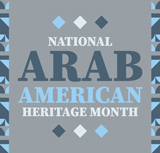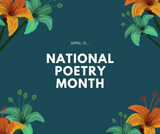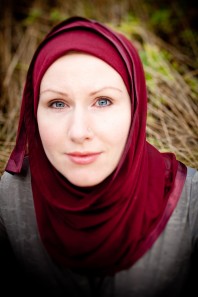 Last week we honored G. Willow Wilson with a 2013 PNBA Award for her novel Alif the Unseen. Thanks to Wilson for sharing this essay with us in celebration of the award (See Jonathan Evison’s post from last week and look for essays from the other four winners in the coming weeks). Join Wilson and Sherman Alexie for an award ceremony at Elliott Bay Book Company Feb. 11 at 7 pm.
Last week we honored G. Willow Wilson with a 2013 PNBA Award for her novel Alif the Unseen. Thanks to Wilson for sharing this essay with us in celebration of the award (See Jonathan Evison’s post from last week and look for essays from the other four winners in the coming weeks). Join Wilson and Sherman Alexie for an award ceremony at Elliott Bay Book Company Feb. 11 at 7 pm.
Seattle is about as far from Cairo as it’s possible to get.
In Cairo I wasn’t weird; in Cairo the vast majority of women wear headscarves, so a woman in a headscarf who writes comics and speculative fiction is not all that strange. In Cairo there are exactly two Starbucks; in Cairo there are 365 days of sun. Moving to Seattle was, as a result, a shock to my system, even though Seattle was technically “home” in the sense that I was returning to my own country. I loved the coffee immediately. The rain was a serious adjustment.
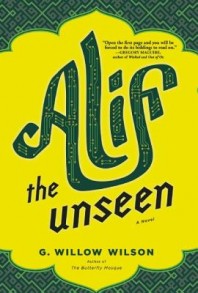
“Grounded in the modern Middle East but bridging virtual reality, history, and mythology, this well-paced novel brings together a thought-provoking array of characters, each with a unique and powerful moral compass.”
— PNBA Awards Committee
What I loved most, however, was my uniquely jumbled-up Northwestern audience: heavily veiled women who came to readings for the novelty of seeing a muhajaba behind a lectern; the savvy literati for which this part of the country is famous, and who all seem to share an optometrist; comic book geeks, who will go anywhere, and brave the bizarrest of circumstances, to talk about comics. It was like seeing myself split up into tribes. I felt responsible for these wildly disparate people, and for reasons a good therapist could probably unpack, I needed them to like each other.
However, the urge to reconcile vastly different worldviews and beliefs is a dubious undertaking at the best of times, and I was sure it would eventually get me in trouble. At a community readings series in Northern California, it very nearly did.
The topic of the series was Muslim American identity. At one of the library events, I met a transgender woman who was a fan of my comics. I will call her Anna. Anna had shoulder-length curly blond hair that was beginning to grey, and nails that had recently been painted a plummy color; her voice was soft and motherly. We chatted briefly in the signing line about graphic novels and the current dearth of comics for children, and she moved on with her books in hand. I never expected to see her again.
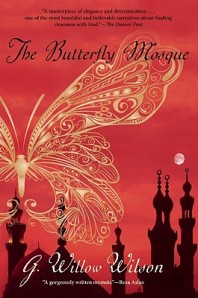 Then she showed up at a mosque.
Then she showed up at a mosque.
It was an interfaith event at a large Islamic Center in the same city as the library where Anna and I had met. The mosque’s organizing committee had asked me to give a talk, tying it to the community reading series, and I recognized many of the non-Muslims in the audience from previous library events. Anna was among them. She was wearing a modest blouse and a long skirt and earrings and chatting respectfully with the head of the mosque’s outreach program, but traces of her natal gender were still apparent, and in a moment of sheer panic, I thought “She’s here because of me. What the hell do I do if they try to throw her out?” A mosque is a highly gendered space–whether you are a man or a woman determines what you wear, where you pray, and in the most conservative communities, who you talk to. The fact that this mosque was holding an interfaith event at which men and women intermingled spoke of a heartbreakingly sincere effort to welcome the wider world, but I knew there were limits to this experiment, and that most of the congregants were not ready to have a conversation about people like Anna.
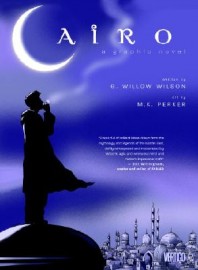 When Anna moved off with a group of people taking a tour of the facility–led by a young woman in a black headscarf–I suddenly decided I wanted to go too. I had only a vague idea of what I would do if there was trouble. Ayatollah Khomeini, in one of his more compassionate moments, physically intervened when his personal guards began to beat a transgender woman who had come to him pleading for help. Interposing his own body between their fists and the prostrate victim, he asked “why do you beat the servant of God?” and proceeded to legalize gender reassignment surgery in Iran. Though Khomeini was a Shi’ite (both the mosque and I were Sunni), and in his later years a certifiable madman, nobody could accuse him of failing to take religion seriously. I was prepared to pull out his ruling in defense of Anna if it came to that. I never stopped to ponder the irony of a novelist using a fatwa by Ayatollah Khomeini to defend a transgender reader. My life has been exactly that weird for a long time.
When Anna moved off with a group of people taking a tour of the facility–led by a young woman in a black headscarf–I suddenly decided I wanted to go too. I had only a vague idea of what I would do if there was trouble. Ayatollah Khomeini, in one of his more compassionate moments, physically intervened when his personal guards began to beat a transgender woman who had come to him pleading for help. Interposing his own body between their fists and the prostrate victim, he asked “why do you beat the servant of God?” and proceeded to legalize gender reassignment surgery in Iran. Though Khomeini was a Shi’ite (both the mosque and I were Sunni), and in his later years a certifiable madman, nobody could accuse him of failing to take religion seriously. I was prepared to pull out his ruling in defense of Anna if it came to that. I never stopped to ponder the irony of a novelist using a fatwa by Ayatollah Khomeini to defend a transgender reader. My life has been exactly that weird for a long time.
The tour leader showed us classrooms, prayer rooms, rec rooms. It was a wonderful facility, and in so many ways uniquely American (mosques in the Middle East are used almost exclusively for prayer and study and rarely become centers of community life). I kept a watchful eye on both Anna and the tour leader, waiting for signs of friction. At one point Anna asked a question. I was so keyed up that I don’t remember what it was: all I remember is the tour leader looking at her, and then looking again with dawning recognition. This is it, I thought. Ayatollah Khomeini time.
But the tour leader only smiled, and in the politest and most respectful voice imaginable, answered the question. There they stood, gazing at each other from opposite, equally reviled fringes of American society. Could it work? I thought wistfully of the close relationship between perfection and comedy, both of which involve juxtapositions of the improbable. The rest of the evening went in the same vein: I gave a talk and got a warm reception, and afterward there were questions and dessert, and the aura of tender weariness that surrounds people who have come a long way to meet one another.
I saw Anna one final time that year, at the closing ceremony of the community reading series. She came up to me and in a shy voice admitted that she’d gone online and bought a couple of headscarves, but couldn’t figure out how to wear them. I pointed out my underscarf, a tight-fitting bonnet many women wear to keep their hijab from slipping. I have no idea whether this meant Anna was considering a conversion–I felt it was not my place to ask. It didn’t matter. What mattered was that the world was a little smaller. We were all huddled together: the freaks, the geeks, the true believers, waiting out the rain.

